Among animals, beneficial insects are the most important group. Insects can be seen as the pioneers of the animal world in the garden.
Currently, many species of animals are permanently extinct, but many insect species continue to shoulder their ecological roles. Suppose, for example, birds and other species disappear one day; insects alone can sustain this ecosystem.
Returning to the garden, insects are very beneficial: they know about weather, seasons, and pests. Initially, they indicate the prevailing environmental conditions, the quality of soil, water, and air. Furthermore, they point out the garden's developmental direction.
What is an ant?
Asking what an ant is now may seem a bit late, and it might even seem like a waste of time because everyone knows what an ant is. But honestly, even I sometimes confuse ants with other insects.
For instance, what do people think this is? This is a velvet ant. Despite having all the characteristics of a wasp—unsegmented antennae, no sting on the thorax-abdomen—it looks like an ant, lacks wings, and crawls on the ground. Westerners often mistake it for an ant.
Perhaps it's because ants are the most populous and organized insects that many species mimic them.
Or maybe it's for some inherent reason, but many species resemble ants, from young house beetles, young horseflies, beetles, termites, cicadas, grasshoppers, crickets, flies, especially bees and even spiders (let's call these species "pseudo-ants" to see how much they resemble ants).
So what is an ant? I think these four characteristics always define ants:
-
Living in large colonies. If you see a lone ant, then it's likely not an ant because ants always live in communities.
-
Clearly divided body into three parts: head, thorax, and abdomen. This is crucial for distinguishing ants from other species like beetles, horseflies, and horseflies, as the abdomens of these species are always fused with the thorax, whereas ants have distinct waist constrictions separating the thorax.
-
Lack of wings, except for the winged queen ant and male ant, which need wings for mating and establishing new colonies.
-
Elbowed antennae. This is the easiest characteristic to distinguish ants from bees because bee antennae are always straight and long, while only ant antennae are elbowed. There is a minor exception here, as some male ants also have straight antennae like bees, but these species are not very common.
>>>Read More: Coucal bird: Natural Enemy of Snakes
Do ants farm or eat?
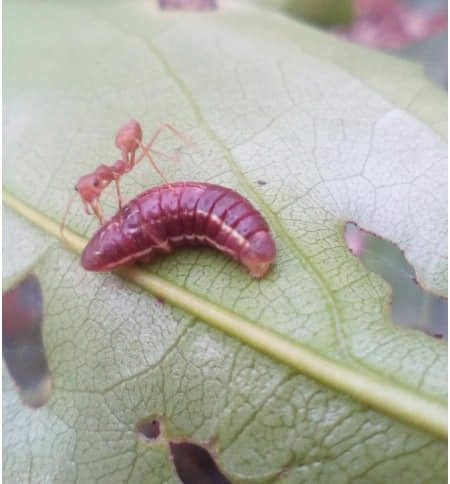
Ants farm aphids that secrete honeydew, which ants use as food. Naming all these species is challenging because there are so many; at least two-thirds of the total species do this.
However, we can take comfort in the fact that ants are very selective in their farming. They only nurture nymphs, females, and wingless aphids. Since these creatures live in a fixed location and have limited self-defense capabilities against enemies, they rely on ants. In return, they provide sweet substances to the ants.
For winged aphids, their relationship with ants is more complex. Most of them are also friendly with ants because ants know that these flying enthusiasts will lay eggs for the next generation.
However, many winged insects are immediately devoured by ants when encountered, especially the elderly, weak, or disabled ones.
We shouldn't expect ants to exterminate aphids because their existence benefits ants. Just like cattle farmers, they must milk the cow dry before slaughter.
But we shouldn't be disappointed when ants farm aphids because, unlike us, ants know "just enough": they don't need to farm aphids to export, increase foreign exchange, create main products, or strike a blow for the economy. If the population of aphids is excessive, ants will reduce them.
In this way, ants farming aphids also help manage aphids.
Ants, natural enemies
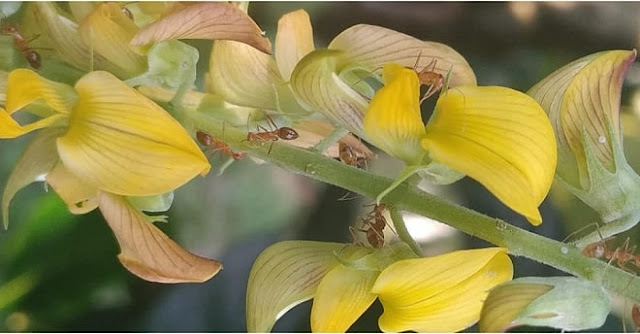
As natural predators, ants are hunters, although they eat plants, fungi, but ants are primarily carnivorous.
Ant prey includes all living organisms. It sounds scary, but I think ants are very civilized predators, hunting with a sense of etiquette and honor.
After catching prey, they bring it back to the nest to share. This act of sharing shows compassion and affection for their kind.
If a comrade is injured while hunting, they also bring it back, showing care.
On the way, if they meet other ants, they greet each other with their antennae.
When encountering prey, the first one rushes in, while the one who comes back from behind is clever.
If they lose in a fight, they immediately return to call the reinforcements. They must complete whatever they do.
But despite ants having such "ethics," we mistakenly think ants are weak natural enemies, which they are not. A horsefly only controls an area of 1 meter, while a dragonfly ranges from 5-10 meters. The ant territory can range from over 100 meters to more than 2 kilometers, depending on whether it is a kingdom or a federation.
Ants are so powerful because they are numerous, and ant warriors are highly skilled. Even though they are all soldiers, ants do not lack special forces to advance in the air, underwater, and in caves. For ants, every citizen is a soldier armed to the teeth.
With such strength, ants should have swept clean the garden and even us long ago. But ants are very gentle. This statement may sound illogical but is true; I will explain it in detail later. For now, thanks to this gentleness, ants leave many empty spaces in their territory for other natural enemies to coexist, preserving some aphids and a large number of prey. This is why our gardens have diversity.
Ants, versatile creatures
Let me tell you about some talents of ants so that we don't think ants are just fierce soldiers. Ants are very talented, and our gardens benefit greatly from their artistic talents, although they have not been properly evaluated.
Ants, laborers
Thanks to ants, we don't have to clean up dead rotting garbage or pollution. Moreover, leftover rice and greasy dishes should all be cleaned up by ants if we are not too allergic to them, whenever they help us.
Ants, manure composters
Many ant species cut or collect leaves and bark to grow mushrooms, thus decomposing a portion of the plant into organic fertilizer.
It can be said that along with termites, ants have chewed up tons of organic matter in the garden while digging nests, digging tunnels, paving paths, and other public works.
Pollination for plants
We thought only bees and butterflies could do this, but ants also eat nectar and pollen, like the ant species in this picture. When moving from one flower to another, ants unintentionally pollinate the plant.
There are many other benefits of ants to the garden; I'm afraid listing them all would be endless, from digging soil, sowing seeds, germinating, transporting seeds to other places, ants contribute to all these tasks.
Ants, messengers
If observed for a long time, we can see that ants alone provide valuable information for gardening.
There are ant species that prefer only a few types of plants. So when planting these plants, we know there are ants of this species. Conversely, when we discover those ants in that area, we can guess which type of plant should be there. For example, the other day when we talked about golden ants, we easily knew there were many woody plants with broad leaves, especially fruit-bearing plants.
Expanding on this, knowing one ant species also means knowing the habitat type of the region. Fire ants are adaptable species in many environments, but their common habitat is open areas, slightly moist. That's why we often encounter them in short-day plant areas, especially with beans and corn.
Ants are also part of the food chain, so seeing one ant species, we can guess the creature that appears before it and the species that will appear after it. If there are aphids, ants will be there. There are species like carpenter ants that woodpeckers come to find for food.
Signs indicate the current situation and future development direction of the garden. When I was young, living near the forest, I often encountered a very large forest ant that stung very painfully. When the forest was completely cut down, it was no longer there. But recently, I visited a garden in the direction of forest gardens and unexpectedly encountered them again.
Clearly, the garden's forestification has provided an environment for this species to live in. This is not an isolated case; many ant species are associated with forest environments, and their appearance in gardens indicates whether the garden is heading in the right direction and what its future will be like.
In addition to this information, everyone knows that ants can predict storms. Knowing which pests dominate, the garden's pollution/cleanliness level... can be said to be endless information received from ants. The difficulty for us lies in understanding them. The only way is to observe directly because no document can clearly explain this.
Social Organization - The Source of Ant Strength
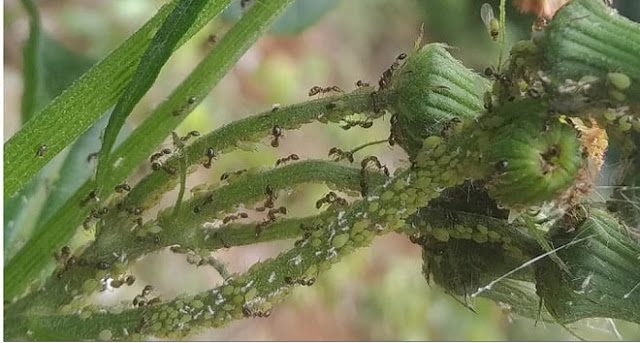
Childhood is the most beautiful stage of your life. But don't dream of enjoying it for long, because ants don't lack tricks to force you to grow up quickly to join the workforce. But you also have your own strategy; eat less to make yourself more compact, and you might find less strenuous work. Or hope that you belong to the elite.
Unlike the common folk busy with everyday survival, the elite prefers political power. Ant society is not lacking in political stories: it's the queen who wants to overthrow all her colleagues to become the absolute queen of the kingdom. It's the princess who wants to establish colonies to become queen.
But most pitiable are the princes, the only handsome men of the kingdom, part of whom engage in work, but most just drink milk in sorrow, dreaming of romancing with the princesses.
We don't yet know the details of the political situation here, whether the monarchists are in power or the democrats hold the advantage, how the Ant Worker's Front (MTTK) operates? But it's certain that ants are very democratic. The class distinctions are actually just the specialization of professions.
True power within the ant colony lies in the survival and development of the colony itself. For this common cause, when necessary, the commoners can execute the queen without guilt when under military command.
With this social organization, ants have built vast farms to raise aphids, extensive plantations to grow fungi, organized explorations, military campaigns, colonization efforts, slave capture, plunder of war booty. And they have built countless cities, great pyramids...
Perhaps on this planet, nothing is as great as the tiny ant colonies beneath our feet.
The Peaceful Nature of the Ant Home
I've seen many books and articles wrongly write that ants are aggressive warmongers. Even when bitten by ants, we hastily agree in error: those ants are really bloodthirsty. In fact, this is extremely misleading; ants are very peaceful. The inherent peaceful nature of ants is akin to a certain ethnic group whose leaders often say: we are a very peace-loving people, but anyone who foolishly comes near us will be clobbered.
If observed closely, we can see many species living harmoniously alongside ants. For example, I have seen many honey-sucking birds' nests near yellow ant nests. Despite being freshly hatched, the young birds are safe from the ants to the extent that every year they return to nest alongside their ant friends.
Not only that, many caterpillars and butterflies can peacefully coexist near ants; some beetles even consider ant nests the safest haven.
Of course, the peaceful nature of ants is not because their leaders often preach friendly nations and hospitable people, but rather because there exists some balance between ants and other species.
Books often write that many species have stolen ant pheromones, making ants think they are family. Personally, I dislike Western scientific methods, so I'm not fully convinced, especially in this case:
A butterfly larva can live peacefully on a blade of grass near an ant nest, with ants passing by daily without attacking it. But if people remove the grass or do anything to disturb the caterpillar, the ants will kill it.
Here it seems an incident occurred where some ineffective faction did not function anymore.
Another bird's nest that I know also lived alongside an ant nest for a long time. But one stormy night, a branch broke, and the next day I saw the birds had been eaten clean by the ants.
I like to think that these cases occur during crises, so the balance collapses.
During the chaos, the ants also attacked their neighbors.
It's difficult to explain the root of the crisis, but I think there may be three main reasons:
Impact from outside. Like the bird's nest encountering a storm just mentioned above.
Internal crisis of the ant home. We can read stories from Africa, South America, where millions of ants are swarming, each time they hit a place, all creatures living and dying. People call it ant migration or ant nest dynamics. This is clearly the ant colony in crisis. This can happen because the ant population is too large, lacking homes, especially food.
And I think it's also common to see crises in the opposite direction. Indeed, if only looking at the two crises above, one is that ants must switch to vegetarianism, and the other is that they suffer from hunger. But ants are more creative than that; they know how to assess their prey. If they see weak prey, they won't hesitate to attack.
We can see this case through insects creeping around the night restaurant, when first entering they are all healthy, but after a night of dancing with the light, most of them are weakened, injured, and the ants notice this crisis will come soon.
Usually, these three things happen at the same time.
Many people may be safe with a loud sound of insects crawling over them probably because they've maintained this balance. As for us, why are we bitten by ants when we go to the garden because we've accidentally provoked them?
So don't blame the ants for being aggressive.
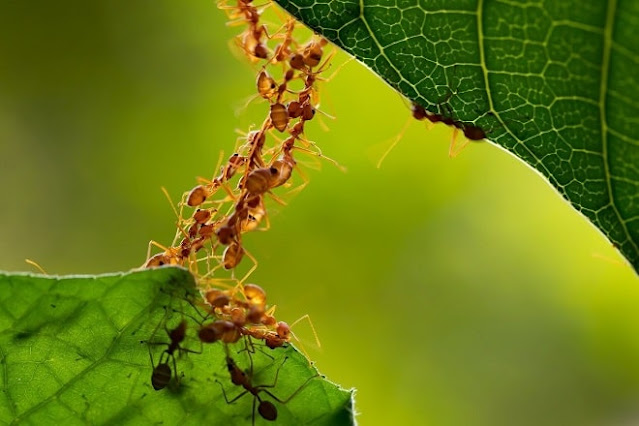
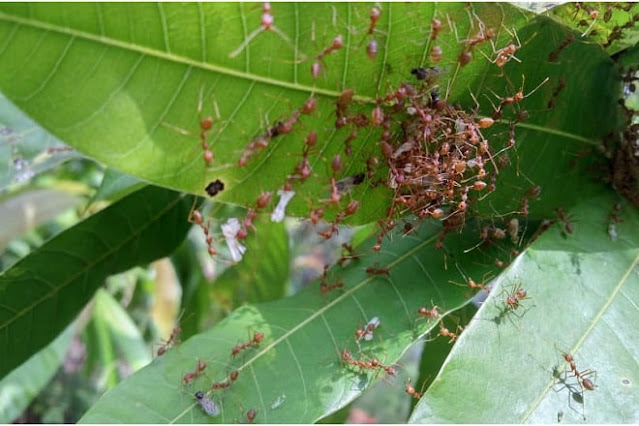


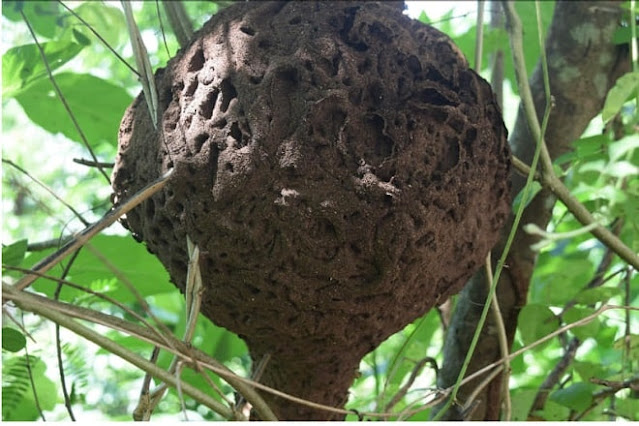

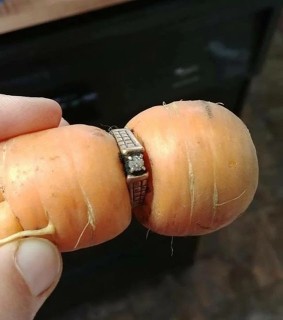 The most unique carrots in the world!
The most unique carrots in the world!
 Guide to Propagating Basil Cuttings for Beginners
Guide to Propagating Basil Cuttings for Beginners
 How to take care of basil plant indoors for Beginners
How to take care of basil plant indoors for Beginners
 Interesting Facts About Ants
Interesting Facts About Ants
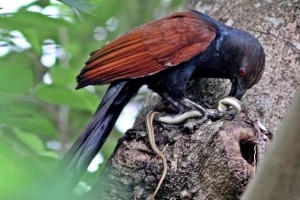 Coucal bird: Natural Enemy of Snakes
Coucal bird: Natural Enemy of Snakes